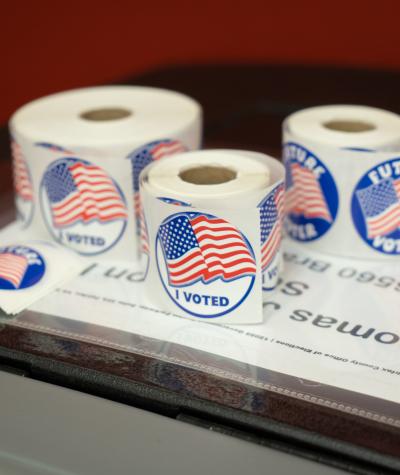President Donald Trump signed an executive order on March 25, 2025, about voting that threatens millions of Americans’ freedom to vote.
The order severely limits access to voting by requiring voters to jump through unnecessary hoops when registering to vote; requiring election officials to use unreliable data sources to remove eligible voters from the rolls; and withholding federal funding from states that lawfully accept mail-in ballots postmarked by Election Day but received later.
To be clear, voting is a freedom that comes with American citizenship. The president does not have the legal authority to adopt policies via executive order that restrict access to that freedom for U.S. citizens.
The responsibility to set voter qualifications — as well as systems for establishing those qualifications — lies with the states. While states use different methods to verify voter eligibility, every state has strict laws to ensure only U.S. citizens vote in federal elections.
Our elections have numerous safeguards in place, and voting systems are regularly analyzed and updated to make sure only U.S. citizens participate — and election officials take this responsibility seriously.
So, what should you need to be able to vote?
When registering to vote, you must swear to your eligibility, including your U.S. citizenship. At the very minimum, every voter registration applicant must provide information that establishes their identity and confirms that they are who they say they are.
More information about state-by-state requirements can be found on Vote.org.
What’s important to remember is we have strict laws to ensure that only American citizens vote in federal elections. Lying about your citizenship when registering to vote can lead to major consequences like financial penalties, jail time and even deportation.
Every state already has safeguards in place to verify voter eligibility, maintain current and accurate voter registration rolls, and keep our elections secure.
Should you need to provide additional documents proving citizenship to vote?
Requiring voters to show documents proving their citizenship only makes it harder for eligible Americans to register and vote. In fact, more than 21 million Americans don’t have access to current documents that could prove their citizenship. That’s nearly 10% of all voting-age Americans.
There is no reason voters should have to jump through extra hoops and provide additional documentation to make their voices heard.
These barriers don’t make our elections safer. They just make it harder for everyday Americans to participate in our democracy. And these barriers often target naturalized citizens, who have worked hard to gain their citizenship and freedom to vote.
Campaign Legal Center has fought back against unfair voter registration requirements in Arizona, New Mexico, Louisiana and Georgia. We’ve protected naturalized citizens from being unlawfully removed from the voter registration rolls in Alabama, Texas and Virginia. And we’ll continue to urge Congress to reject the SAVE Act.
Our democracy is strongest when every eligible American can vote, and CLC is at the forefront of the effort to protect this essential American freedom.


